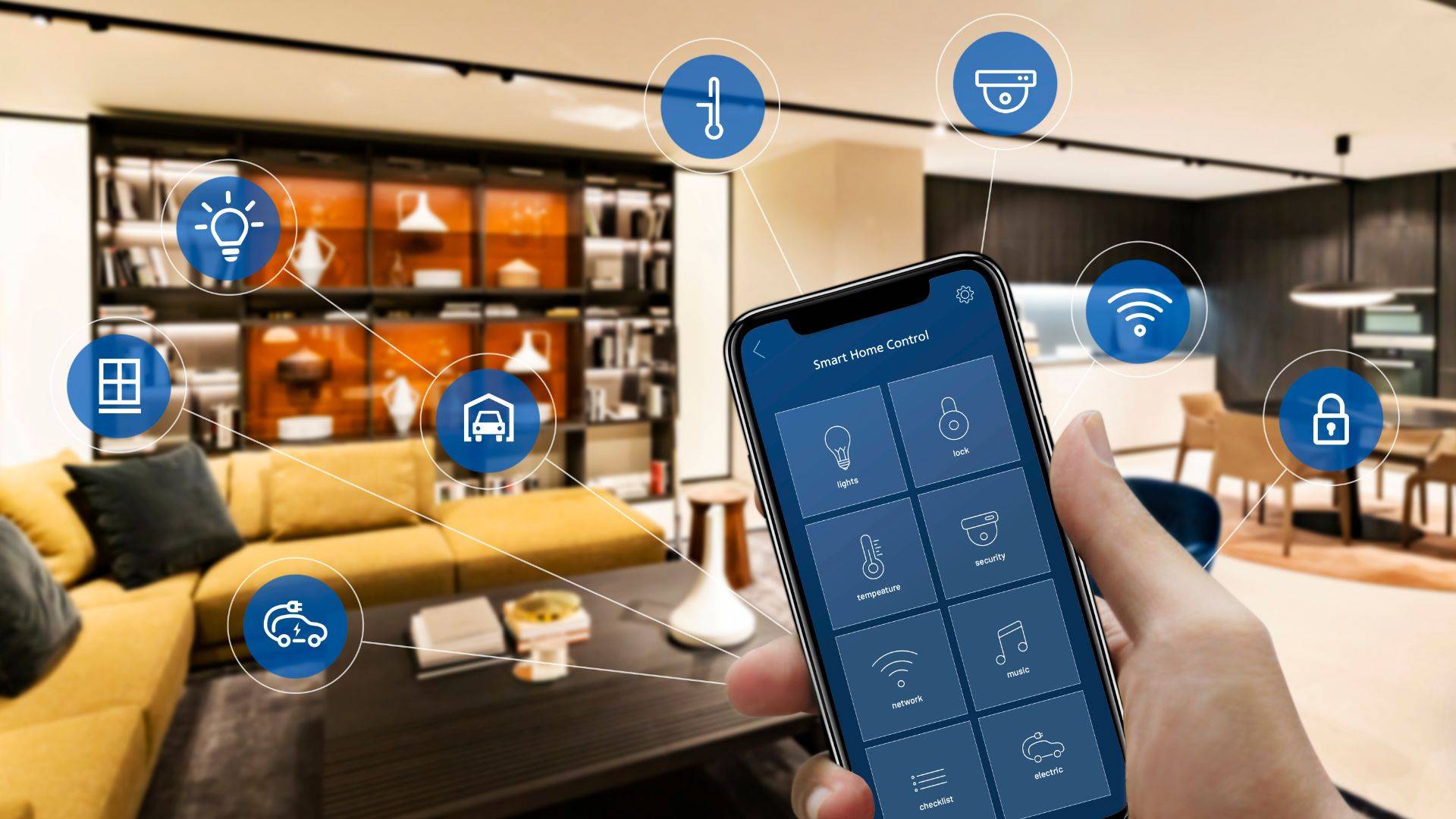Home automation has become increasingly popular in recent years, and it’s not hard to see why. With the help of smart devices, you can control your home’s temperature, lighting, security, and more, all with the touch of a button or the sound of your voice. And while home automation may seem like a luxury, it can actually be incredibly helpful for seniors who want to live independently for as long as possible.
By automating certain tasks, seniors can reduce the risk of falls and other accidents, while also making their homes more comfortable and convenient. For example, smart thermostats can help regulate the temperature in a home, ensuring that seniors are always comfortable and reducing the risk of overheating or hypothermia. Smart lighting can also be helpful, allowing seniors to turn lights on and off without having to get up or walk across a room. And with the help of smart security systems, seniors can keep an eye on their homes and feel safer and more secure.
Benefits of Home Automation for Seniors
Home automation can provide numerous benefits for seniors, making their lives easier and more comfortable. Here are some of the key benefits:
Convenience
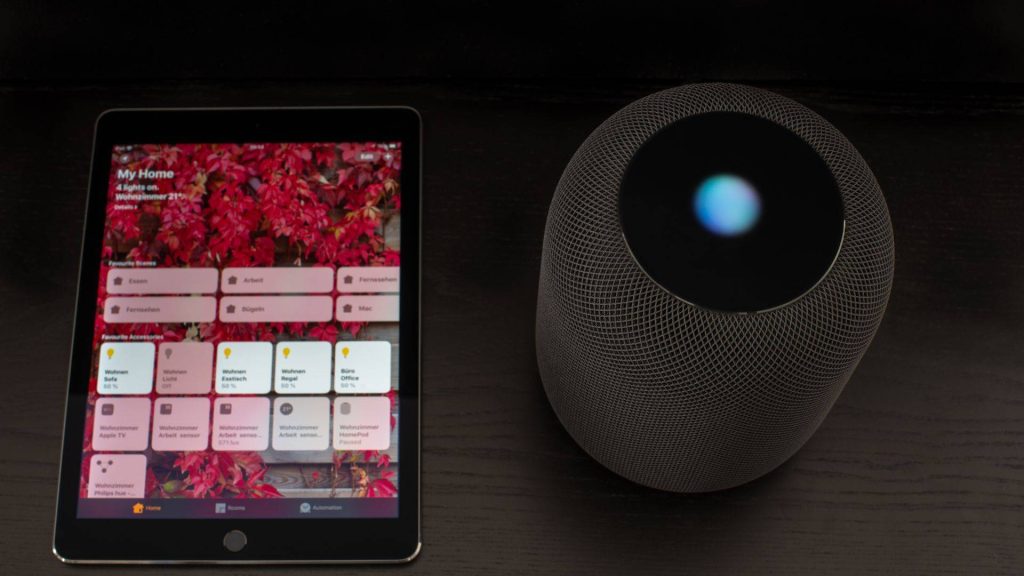
With home automation, you can control almost everything in your house using a voice assistant app. This means you can turn on or off lights, adjust the thermostat, and control entertainment systems without ever leaving your seat. This convenience is especially helpful for seniors who may have mobility issues or difficulty reaching certain areas of the house.
Independence
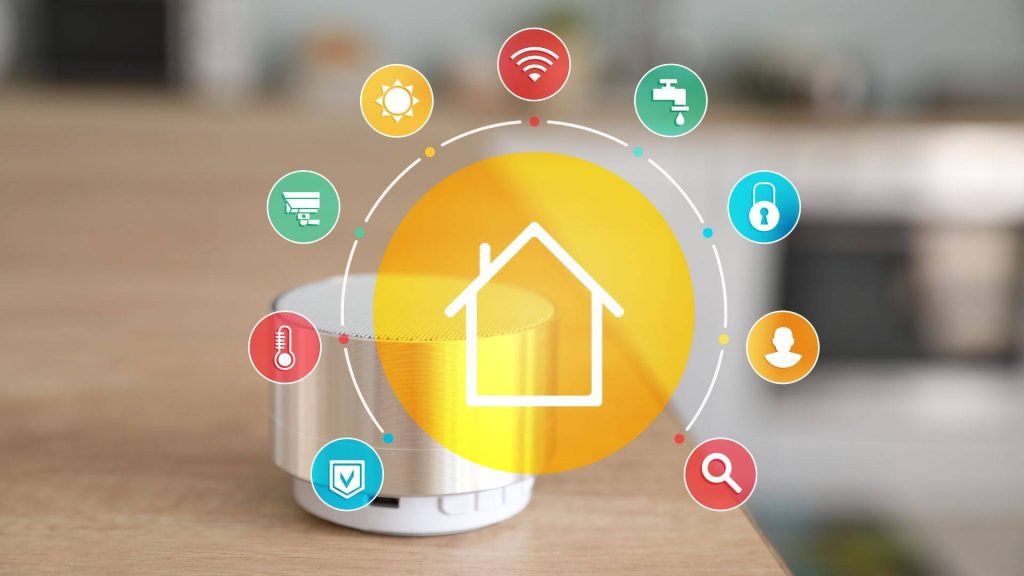
Home automation can help seniors maintain their independence by making it easier to complete everyday tasks. For example, smart home devices can remind seniors to take their medication, turn off the stove, or lock the door. This can help seniors feel more confident and in control of their daily lives.
Entertainment

Smart home devices can also provide entertainment for seniors. For example, you can use a voice assistant to play music or audiobooks, watch movies or TV shows, or even play games. This can help seniors stay engaged and entertained, which is important for overall well-being.
Socialization

Home automation can also help seniors stay connected with loved ones. For example, video chat devices can allow seniors to easily communicate with family and friends, even if they live far away. This can help reduce feelings of loneliness and isolation, which can be common among seniors.
Safety and Security
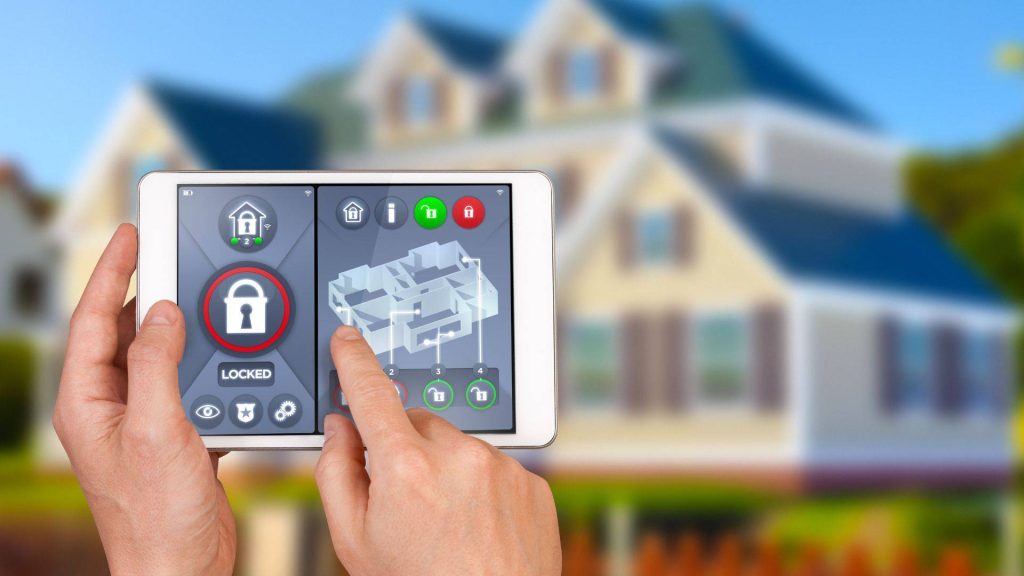
Home automation can provide added safety and security for seniors. For example, smart home devices can monitor movement in the home and alert caregivers or family members if there is a problem. Medical alert systems can also provide peace of mind, allowing seniors to call for help in case of an emergency.
Overall, home automation can provide numerous benefits for seniors, helping them maintain their independence, stay connected, and live comfortably and safely in their own homes.
Smart Home Devices for Seniors
Smart home devices can be incredibly helpful for seniors who want to age in place. These devices can help with everything from home security to medication management. Here are some smart home devices that you might want to consider:
- Smart Door Locks: These locks can be controlled with your smartphone or a keypad, so you never have to worry about losing your keys. You can also give access to family members or caregivers remotely.
- Smart Thermostats: These devices can learn your temperature preferences and adjust the temperature automatically. They can also be controlled with your smartphone or voice commands.
- Smart Lighting: Smart lights can be controlled with your smartphone or voice commands. You can also set schedules or use motion sensors to turn lights on and off automatically.
- Smart Cameras: These cameras can be used for home security or to keep an eye on loved ones. Some cameras even have two-way audio, so you can communicate with someone in another room.
- Smart Speakers: Smart speakers like Amazon Echo or Google Home can be used to control other smart devices with your voice. They can also be used to play music, make phone calls, and set reminders.
- Medical Alert Systems: These systems can be worn as a pendant or bracelet and can be used to call for help in case of an emergency. Some systems also have fall detection technology.
- Smart Pill Dispensers: These devices can help you manage your medication by reminding you when it’s time to take your pills. Some dispensers can even dispense pills automatically.
Smart home devices can make life easier for seniors who want to stay in their homes as they age. They can help with everything from home security to medication management, and can be controlled with your smartphone or voice commands. Consider investing in some of these devices to make your home safer and more comfortable.
Voice-Activated Assistants
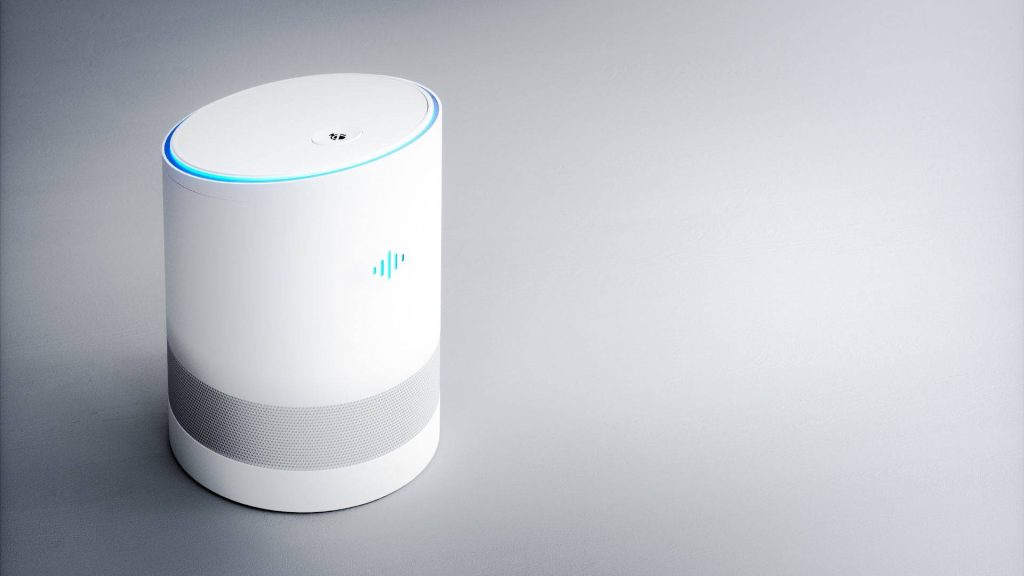
One of the most popular and versatile smart home devices for seniors is a voice-activated assistant. These devices use natural language processing to understand and respond to your commands, making them an ideal tool for seniors who may have trouble using traditional interfaces like buttons or touchscreens.
With a voice-activated assistant, you can control a wide range of smart home devices with just your voice. You can turn on lights, adjust the thermostat, play music, and even order groceries or takeout. Some assistants can also answer questions, set reminders, and make phone calls, making them a valuable companion for seniors who may be living alone.
When choosing a voice-activated assistant, there are a few key features to consider. First, make sure the assistant is compatible with the other smart home devices you already own or plan to purchase. Most assistants work with a wide range of devices, but it’s always a good idea to double-check before making a purchase.
Second, consider the quality of the assistant’s voice recognition and response. Look for an assistant that can understand a wide range of accents and dialects, and that can respond quickly and accurately to your commands. Some assistants also offer personalized responses based on your preferences and habits, which can be a nice touch.
Finally, consider the privacy and security features of the assistant. Make sure the assistant uses encryption and other security measures to protect your data, and that you can control when and how the assistant listens to your commands. Some assistants also offer the ability to delete your voice recordings after a certain period of time, which can help protect your privacy.
Overall, a voice-activated assistant can be a valuable tool for seniors looking to automate their homes and simplify their daily routines. With the right assistant, you can control your home with just your voice, and enjoy the convenience and peace of mind that comes with smart home technology.
Security and Safety Features
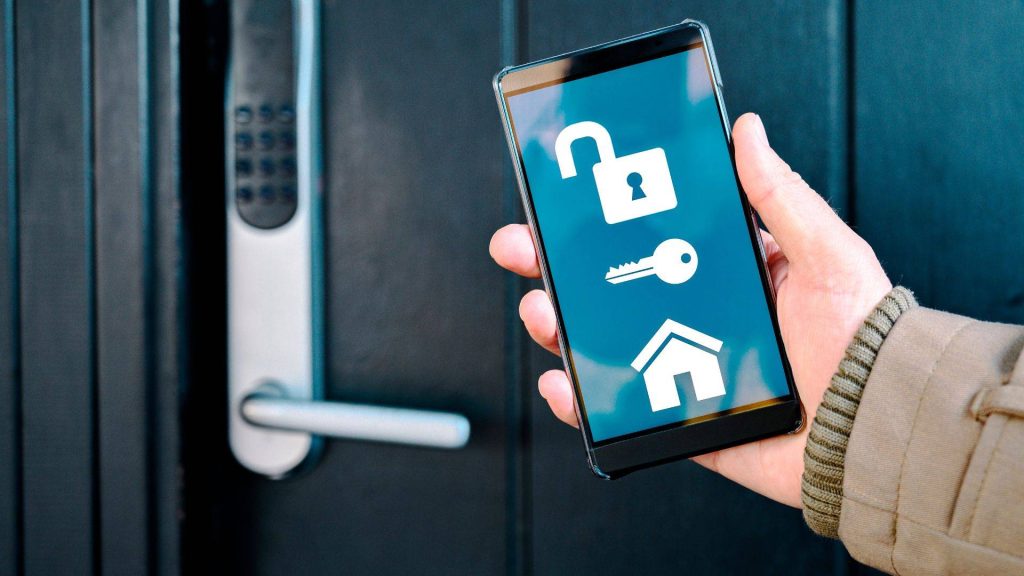
When it comes to home automation for seniors, security and safety features are a top priority. With the right smart home devices, you can keep your home secure and safe, even when you’re not there. Here are some of the most important security and safety features to consider:
1. Smart Locks
Smart locks allow you to lock and unlock your doors remotely, which is especially useful if you have mobility issues or have trouble remembering to lock your doors. You can also set up alerts to notify you when someone enters or leaves your home, so you can keep tabs on who is coming and going.
2. Security Cameras
Security cameras are a great way to keep an eye on your home, both inside and out. With a smart security camera, you can view live footage from your phone or tablet, and receive alerts when motion is detected. Some cameras also have two-way audio, so you can communicate with anyone in your home.
3. Motion Sensors
Motion sensors can be used to detect movement in your home and trigger an alarm or send you an alert. This is especially useful if you live alone or have trouble hearing. You can also use motion sensors to turn on lights automatically when you enter a room, which can help prevent falls and accidents.
4. Smoke and Carbon Monoxide Detectors
Smart smoke and carbon monoxide detectors can alert you to potential dangers in your home, even when you’re not there. Some detectors can also be integrated with other smart home devices, such as smart lights, to provide additional warnings and help you evacuate quickly.
5. Emergency Response Systems
Emergency response systems are designed to provide quick assistance in case of a medical emergency or other emergency situation. These systems usually include a wearable device, such as a pendant or wristband, that you can use to call for help. Some systems also include fall detection, so if you fall and can’t get up, the system will automatically call for help.
With these security and safety features, you can have peace of mind knowing that your home is secure and safe, and that you can get help quickly in case of an emergency.
Smart Thermostats
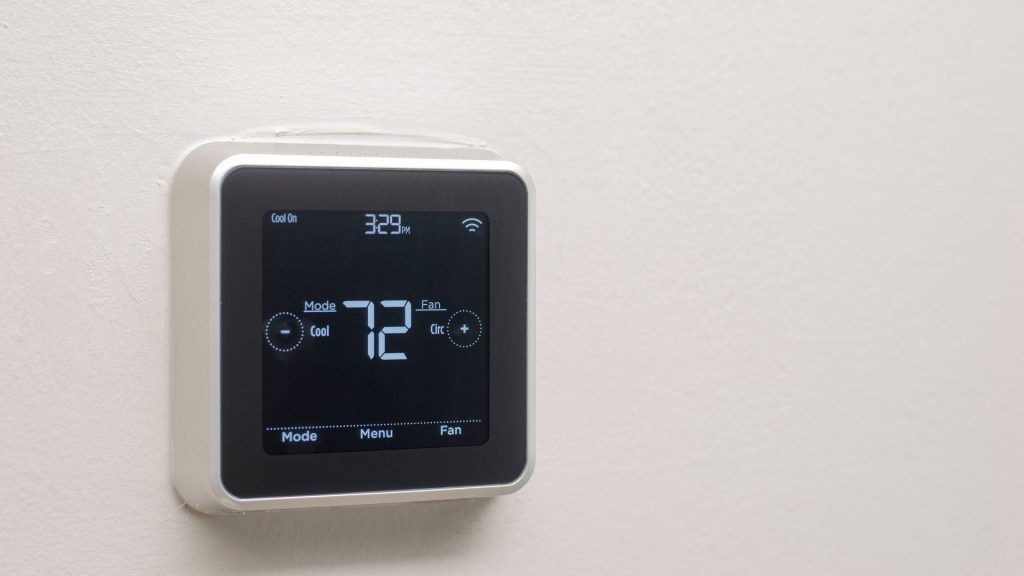
Smart thermostats are a great way to make your home more comfortable and energy-efficient. With a smart thermostat, you can control the temperature of your home from your phone or tablet, and even set up schedules to automatically adjust the temperature based on your routine.
For seniors, smart thermostats can be especially helpful. They can help you save money on your energy bills, and make it easier to keep your home at a comfortable temperature without having to get up and adjust the thermostat manually.
When choosing a smart thermostat, there are a few things to keep in mind. First, make sure that it is compatible with your HVAC system. Some smart thermostats may not work with older systems, so it’s important to check before you buy.
Second, consider the features that are important to you. Some smart thermostats come with voice control, which can be helpful if you have mobility issues. Others may have sensors that detect when you are in the room, and adjust the temperature accordingly.
Here are some of the best smart thermostats for seniors:
| Smart Thermostat | Features |
|---|---|
| Ecobee SmartThermostat with Voice Control | Voice control, room sensors, energy reports |
| Google Nest Learning Thermostat | Learns your schedule, energy reports, compatible with many HVAC systems |
| Honeywell Home T9 Wi-Fi Smart Thermostat | Room sensors, geofencing, compatible with many HVAC systems |
| Emerson Sensi Touch Wi-Fi Smart Thermostat | Touchscreen display, easy to use app, compatible with many HVAC systems |
No matter which smart thermostat you choose, it’s important to take the time to set it up properly and learn how to use it. With a little bit of effort, you can enjoy a more comfortable and energy-efficient home.
Smart Lighting
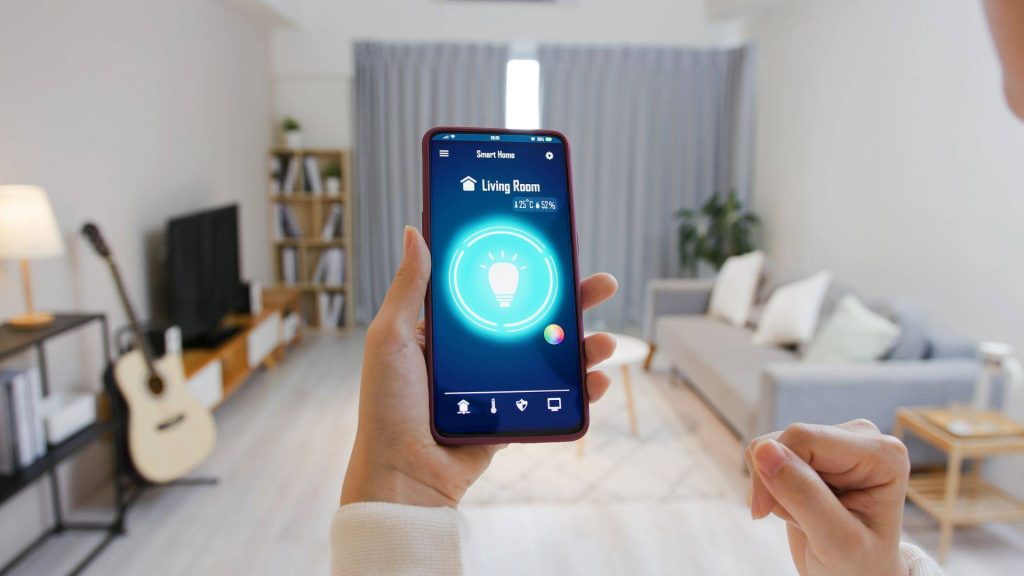
Smart lighting can make life easier for seniors by automating lighting control and reducing the risk of falls and injuries. With smart lights, you can turn on and off the lights without having to get up, and you can set them to turn on automatically when you enter a room.
Smart lights can also be controlled remotely, so if you forget to turn off a light when you leave the house, you can do it from your smartphone. You can also set schedules for your lights to turn on and off at specific times, making it look like someone is home even when you’re away.
Another benefit of smart lighting is that it can be integrated with other smart home devices, such as motion sensors and security cameras. For example, you can set your lights to turn on automatically when someone enters a room, or when your security camera detects motion outside your home.
Smart lights come in different types, including smart bulbs, smart switches, and smart plugs. Smart bulbs are easy to install and can be controlled using a smartphone app or a voice assistant like Alexa or Google Assistant. Smart switches and plugs require a bit more installation work, but they can control multiple lights or devices at once.
When choosing smart lighting for your home, consider the following factors:
- Compatibility with your existing smart home system
- Ease of installation and setup
- Energy efficiency and cost savings
- Customization options, such as color and brightness control
Overall, smart lighting can be a valuable addition to any senior’s home automation setup, providing convenience, safety, and energy savings.
Smart Home Entertainment Systems
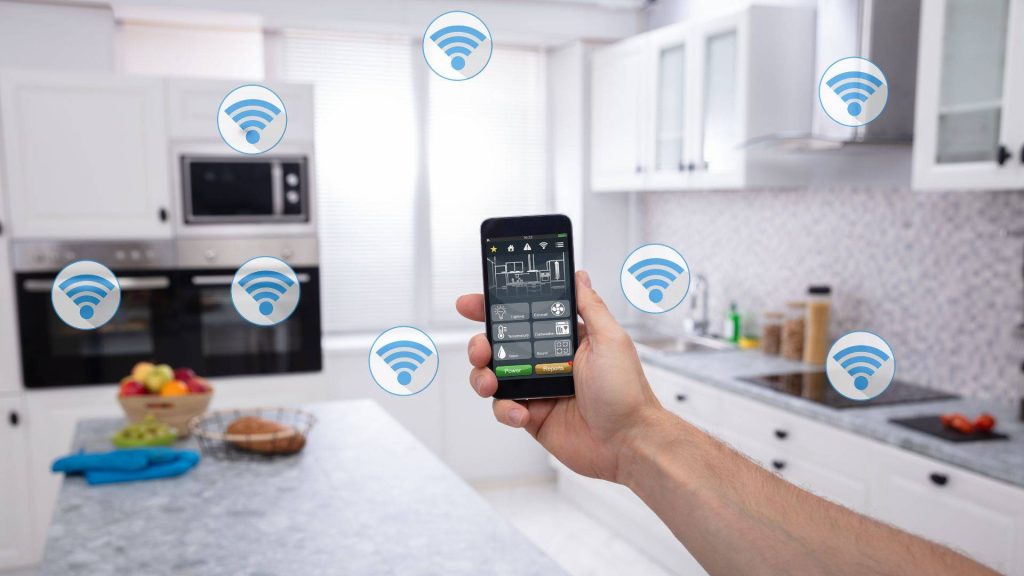
As a senior, you might find it challenging to keep up with the latest technology when it comes to home entertainment systems. However, with smart home automation, you can enjoy your favorite movies, TV shows, and music without any hassle.
One of the most popular smart home entertainment systems is the Amazon Fire TV Cube. This device acts as a streaming media player, allowing you to access popular streaming services like Netflix, Hulu, and Amazon Prime Video. With voice control, you can easily navigate through your favorite shows and movies. Plus, the device can also control other smart home devices, such as your lights and thermostat.
Another great option is the Sonos Beam, a smart soundbar that can be integrated into your existing home theater system. With voice control, you can play music, adjust the volume, and even control your smart home devices. Plus, the device has built-in Amazon Alexa, allowing you to ask questions and control your smart home with ease.
If you’re looking for a more immersive experience, consider the Samsung QLED TV. This smart TV offers stunning picture quality and can be controlled with voice commands. With built-in Alexa, you can change channels, adjust the volume, and even control your smart home devices. Plus, the TV can be integrated with other smart home devices, such as your smart lights and thermostat.
Overall, smart home entertainment systems can make your life easier and more enjoyable. With voice control and integration with other smart home devices, you can have a seamless entertainment experience without any hassle.
Installation and Maintenance Considerations
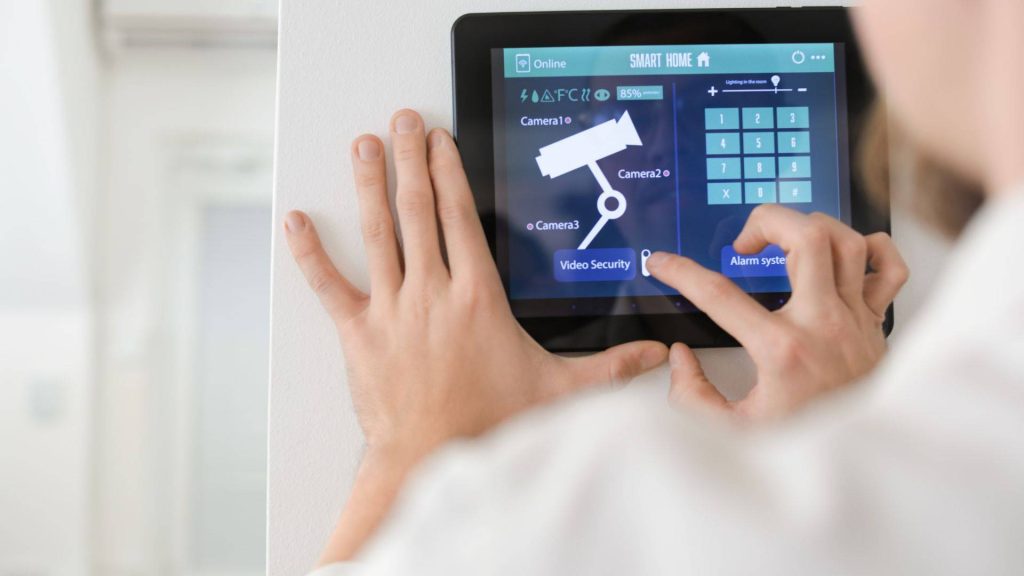
When it comes to home automation for seniors, installation and maintenance considerations are crucial. Here are some important points to keep in mind:
Installation
- Professional installation: It is highly recommended that you hire a professional to install your home automation system. They will ensure that the system is installed correctly and securely, minimizing any potential safety risks.
- Compatibility: Before purchasing any home automation devices, make sure they are compatible with your existing system. This will save you time, money, and frustration in the long run.
- Ease of use: Choose devices that are easy to install and use. Complicated devices may be difficult for seniors to operate, defeating the purpose of home automation.
- Location: Consider the location of the devices. Devices that are placed too high or too low may be difficult for seniors to reach. Ensure that the devices are installed at a suitable height and location.
Maintenance
- Regular checks: Regularly check your home automation system to ensure it is functioning properly. This will help you detect any issues before they become serious problems.
- Software updates: Keep your home automation system up-to-date with the latest software updates. This will ensure that your system is secure and functioning optimally.
- Battery replacement: Replace the batteries in your devices as needed. This will ensure that they continue to function properly.
- Professional maintenance: Consider hiring a professional to perform regular maintenance on your home automation system. They will ensure that your system is functioning properly and identify any potential issues before they become serious problems.
By keeping these installation and maintenance considerations in mind, you can ensure that your home automation system is secure, functional, and easy to use.

